5 Obama Handshakes to Watch at the United Nations
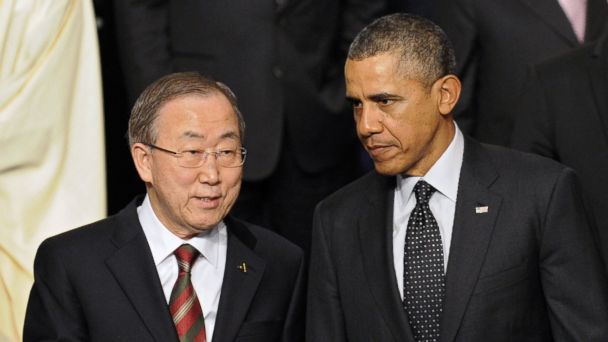
(John Thys/AFP/Getty Images)
President Obama arrives at the United Nations headquarters later today for a whirlwind three days of meetings, forums, receptions and lots, and lots of handshakes.
Representatives of more than 193 states will attend the U.N. General Assembly, including more than 120 presidents and prime ministers. Here are five to pay attention to if and when they press the flesh with Obama.
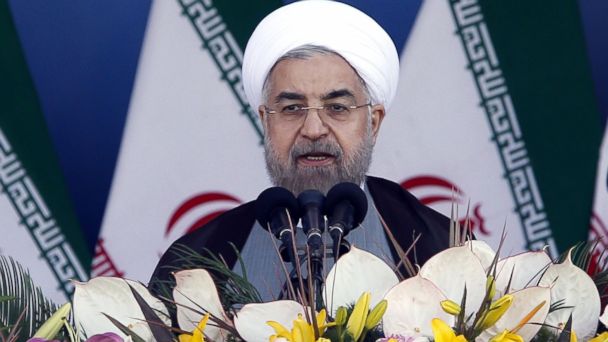
(Fatemeh Bahrami/Anadolu Agency/Getty Images)
To shake, or not to shake? That's the question aides to Obama and Rouhani will be weighing after a history-making encounter during the U.N. General Assembly last year. The rival leaders spoke briefly by phone at the end of the 2013 summit, marking the highest level American-Iranian contact in decades. But a rumored face-to-face meeting never materialized. Now, as western powers race toward an end-of-year deadline on nuclear negotiations with Iran - and seek Iran's help in the fight against shared-nemesis ISIS - perhaps a little presidential touch could be in order.
"The President of the United States is well known for being open to such a meeting, but the choice is really Iran's," a senior Obama administration official said last week. There is no official meeting on the books - and it's not clear Obama and Rouhani will ever be in the same room at the same time. Secretary of State John Kerry met privately with his Iranian counterpart for more than an hour on Sunday at a New York City hotel.
"This week is an opportunity to make additional progress," Kerry said. "It is our intention to do so.
2. EGYPTIAN PRESIDENT ABDEL FATTAH EL-SISSIWhen President Obama shakes hands with President Abdel el-Sissi of Egypt for the first time on Thursday, there's a good chance the former Egyptian army general will say, "I told you so."
El-Sissi says his role in last year's coup and his imposition of a hardline ruling order in Egypt - both of which have drawn criticism from the U.S. - have been valuable antidotes to the establishment of Islamic extremist groups like ISIS, also known as ISIL or the Islamic State.
"More than a year ago, I warned that the region was heading to great danger from extremist thought," he told the Associated Press in an interview. "It didn't receive proper attention until the events in Iraq took place and the Islamic State swept over the Iraqi-Syrian borders."
As Obama looks to bolster his anti-ISIS coalition with commitments from Arab countries, the personal encounter with El-Sissi could be a critical moment. "We are completely committed to giving support. We will do whatever is required," El-Sissi told AP of the evolving international military campaign. Perhaps they can seal a deal.
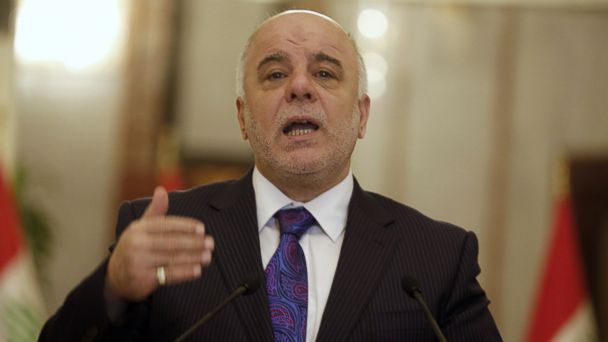
(Sabah Arar/AFP/Getty Images)
As American warplanes help put the squeeze on ISIS militants terrorizing his country, Iraqi Prime Minister Haider Al-Abadi on Wednesday will have his first face-to-face meeting the U.S. military's commander-in-chief. In many ways, al-Abadi is the linchpin of President Obama's new strategy to take the fight to ISIS. The White House has said the formation of an inclusive, "broad-based" Iraqi government was a prerequisite for greater American military involvement in the fight. On Sept. 8, Obama called to congratulate al-Abadi on getting it done.
One thing on which both men will agree: no U.S. ground troops should surge into Iraq to join the fight. "We don't want them. We won't allow them. Full stop," he told the AP in an interview last week. "The only contribution the American forces or the international coalition are going to help us with is from the sky. We are not giving any blank check to the international coalition to hit any target in Iraq."
With little appetite for deep entanglement in another war, Obama it seems would be happy to oblige.
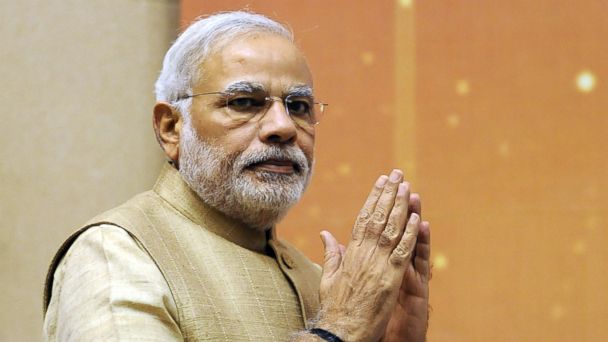
(Sonu Mehta/Hindustan Times via Getty Images)
For almost ten years, Narenda Modi was barred by the State Department from stepping foot in the U.S. This week, newly installed Indian Prime Minister will meet President Obama and be feted with a private dinner at the White House.
Modi, a Hindu nationalist, had been denied entry since 2005 under provisions of a 1998 law that restricts visas for political figures responsible for "severe violations of religious freedom." The George W. Bush administration determined that Modi, as chief minister of Gujarat, India, failed to stop a series of riots that turned deadly for Muslim minority groups in his state. But an Indian supreme court has since ruled that Modi was not culpable and the Obama administration has quietly lifted the ban.
Obama may shake Modi's hand, but it's unclear whether there a picture of the encounter will be made public.
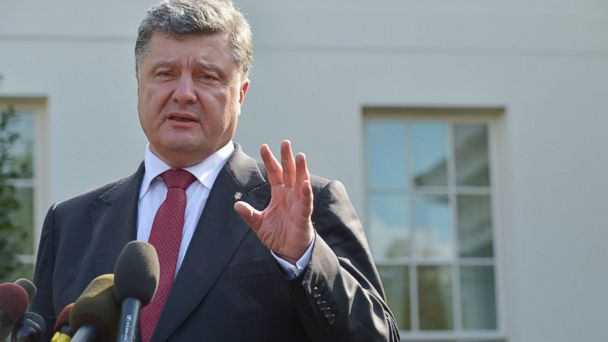
(Mandel Ngan/AFP/Getty Images)
On the heels of a highly-symbolic trip to Washington and meeting in the Oval Office, Petro Poroshenko has plenty of reasons to shake President Obama's hand and smile for the cameras. He went home with $53 million more in U.S. humanitarian and military aid, and effectively sent a message to Russian President Vladimir Putin about where Ukraine's alliances stand. Putin, who was uninvited from the G8 summit earlier this year, has chosen to not attend the U.N. General Assembly. But a Russian role in the fight against ISIS remains very much under discussion with that country's foreign ministers who are at the table.
"We have demonstrated over the course of our relationship with Russia is that it is possible for us to have strenuous disagreements related to their behavior in certain parts of the world while being able to maintain some ongoing cooperation and collaboration with them in other parts of the world," said White House spokesman Josh Earnest. "And our counter-terrorism relationship with Russia despite our very strong and vigorous differences as it relates to Ukraine, is ongoing."
ABC News' Ali Weinberg and the Associated Press contributed to this report.